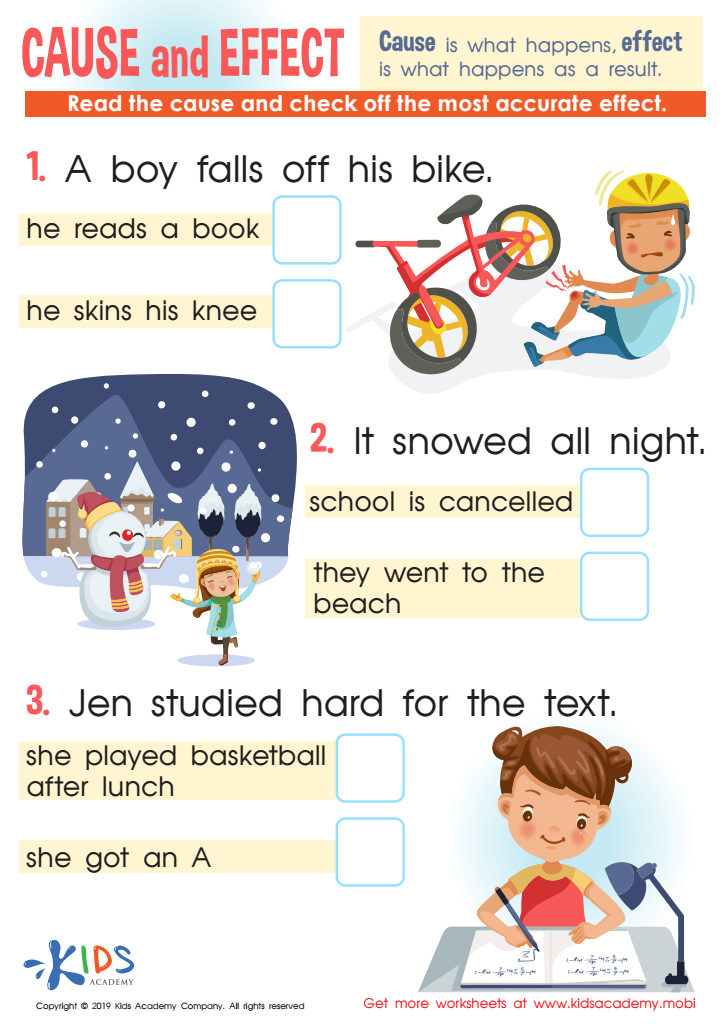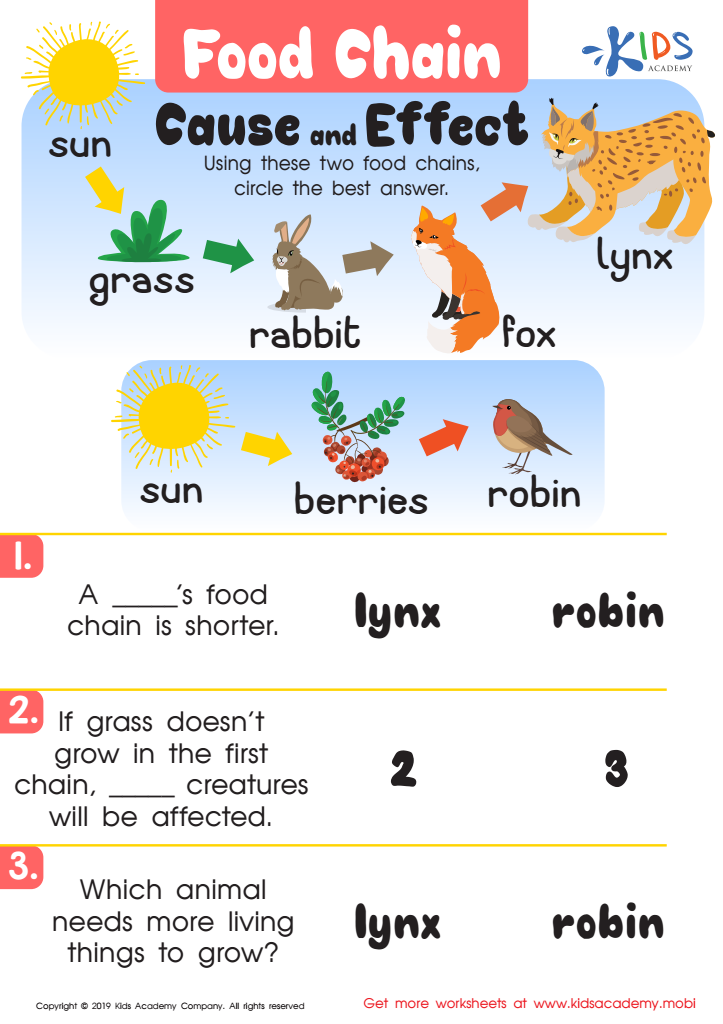Enhancing critical thinking Reading Worksheets for Ages 4-8
3 filtered results
-
From - To
Discover our engaging "Enhancing Critical Thinking Reading Worksheets" for children aged 4-8! These worksheets are designed to boost critical thinking skills through fun and interactive reading activities. Our materials encourage young learners to analyze, compare, and make connections while fostering their love for reading. Tailored for early grade classrooms or homeschooling, these worksheets enhance comprehension and cognitive skills through vibrant illustrations and thought-provoking questions. Perfect for parents and educators aiming to support children’s intellectual growth in a playful manner. Explore our collection today to empower the next generation of critical thinkers and make learning a delightful experience!


Cause And Effect Worksheet


Food Chain Cause Worksheet
Enhancing critical thinking in young readers aged 4-8 is crucial for their overall development and future success. At this key developmental stage, children are naturally curious and eager to explore their world. Introducing critical thinking skills through reading helps them engage more deeply with texts, fostering better comprehension and retention. When parents and teachers encourage children to ask questions, make predictions, and connect stories to their own experiences, they cultivate a mindset of inquiry and problem-solving.
Furthermore, strong critical thinking skills support academic achievement across subjects. Children who can analyze information, assess different perspectives, and draw conclusions are better equipped to tackle complex ideas as they advance through school. This skillset also nurtures creativity, allowing children to express themselves confidently and innovate.
Moreover, these early years are pivotal for social-emotional development. By discussing characters' motivations and dilemmas, children learn empathy and appreciate diverse viewpoints, essential qualities for fostering positive relationships in a diverse society. Ultimately, investing in critical thinking through reading during these formative years not only enhances literacy skills but also shapes thoughtful, informed citizens for the future. Parents and teachers must prioritize this area to ensure children thrive in both their academic journeys and their social lives.
 Assign to My Students
Assign to My Students

















